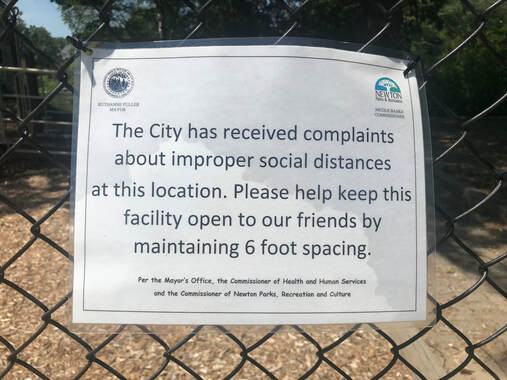|
As the current pandemic continues to plague the U.S., COVID-19 is changing the college admission application process in multiple ways. Admissions officers won’t be traveling to high schools across the country to meet with students in person. Since the vast majority of rising seniors have not been able to take the SAT or the ACT this year, an unprecedented number of colleges and universities have gone test-optional (at least for this current admission cycle). And now, the Common Application has added a pandemic-specific question to its form.
What does this mean for students planning on applying to colleges and universities this fall? The Common Application decided to create a specific spot in its online form in the Additional Information section where students are given 250 words (maximum) to share any specific information they wish about how the pandemic has affected their lives. The prompt reads as follows: “Community disruptions such as COVID-19 and natural disasters can have deep and long-lasting impacts. If you need it, this space is yours to describe those impacts. Colleges care about the effects on your health and well-being, safety, family circumstances, future plans, and education, including access to reliable technology and quiet study spaces.
Since the Common Application announced this new “COVID question” in May, I’ve spent much time attending webinars and reading opinions on the pros and cons of students answering this prompt, and some best practices on how to approach this section. Most information that I’ve come across appears to fall into two camps: the “Yes! Always answer every optional question!” group and the “It Depends” side (obviously, the reality is that many people have varying opinions on this situation, and fall somewhere on a scale rather than embracing a binary). My thoughts are closer to the “It Depends” voices, since every applicant is unique with specific circumstances that should be individually assessed and addressed. That said, the best advice I’ve come across is from The College Essay Guy himself, Ethan Sawyer. His blog entry entitled “How to Write About Coronavirus/COVID-19 In Your College Essay & Application” details a useful step-by-step guide on how a student may approach this specific prompt. It’s helpful precisely because it begins by asking the high school senior a series of questions to determine whether or not the student should even use this section. Again, what is appropriate for one young adult may not make sense for her peer, and this is the case with EVERYTHING in the college admission process (it’s one of the reasons why parents often marvel at how one child ends up attending a large research university for their undergraduate education, while another sibling thrives in a small liberal arts setting). Next, if the student has determined that answering this prompt is appropriate for her, then Sawyer provides several options and ideas for how a senior may formulate a response. From my perspective, I strongly encourage students who choose to write about their COVID-19 experience to use the specific 250-word Coronavirus section to do so in a clear and straightforward manner, instead of writing a full essay about it in either the “Additional Information” section (one of the few truly “optional” spaces on any common application) or the main 650-word personal statement area. Each student is so much more than how he/she/they have responded to the pandemic, so save the other spaces in the Common Application for showcasing the student’s individuality and uniqueness. Nevertheless, if you feel strongly that a student must use every possible opportunity to share information about him/her/themselves (including the new COVID-19 essay space), then Brad Schiller, CEO of Prompt (a company that focuses on helping students become better writers and provides extensive college essay writing support), offers helpful advice. According to Schiller, students should use this section to prove that they will be successful in college and beyond by demonstrating 5 qualities: drive/grit, intellectual curiosity, taking initiative, contributing to a community, and a diversity of experiences. He recommends taking one of two approaches: writing an essay about personal circumstances and how students met their new challenges head-on (i.e., experienced hardships and what they did to improve their situation), OR writing an essay about one’s personal growth (i.e., how did the pandemic spark a new growth in intellectual curiosity, for example). For all COVID essay answers, Schiller reminds students to explicitly demonstrate how they used their pandemic time and to share how they are engaging with or perceiving themselves or the world differently. The bottom line? Just like with everything in a college admission application process, it all depends on the individual student. There is no magic bullet or secret formula to crafting a great application. Students and families should discuss whether or not responding to the COVID essay prompt is the right choice for them, and then trust that decision. And don’t be afraid to reach out for advice from your school counselors, admission officers, or independent educational consultants! Just like you are not alone in the experience of this pandemic, you’re not alone in your journey to college.
0 Comments
Leave a Reply. |
AuthorMaruta Z. Vitols is an independent educational consultant in the metro-Boston area. When not helping students achieve their dreams, she enjoys hanging out with her dog, exploring new places with her husband, and doing yoga. Archives
April 2023
Categories |


 RSS Feed
RSS Feed